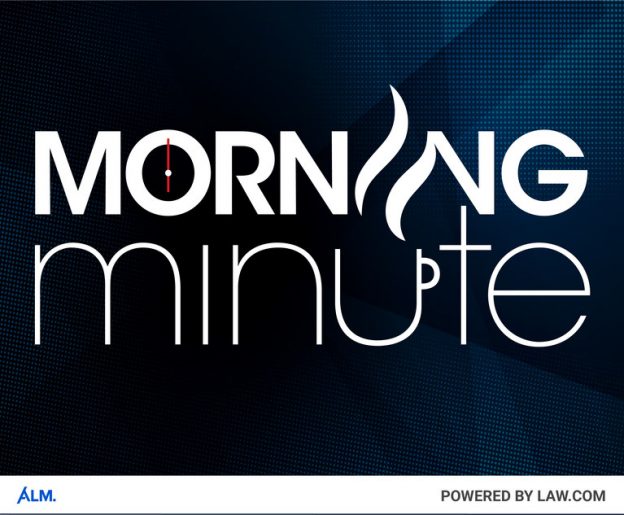Emojis Are Increasingly Legally Binding: The Morning Minute
The news and analysis you need to start your day.
July 19, 2023 at 06:00 AM
4 minute read

Want to get this daily news briefing by email? Here's the sign-up.
WHAT WE'RE WATCHING
ON ITS FACE - As if emojis weren't hard enough to interpret in your personal life, they're increasingly raising complicated legal questions as well. Case, literally, in point: A Canadian farmer was just held liable to pay thousands for undelivered flax thanks to a "thumbs-up" emoji he apparently didn't realize had legal impact—and he isn't the first person to experience such repercussions in North America. While many contract attorneys still view emojis as a lighthearted form of communication, Eric Goldman, a law professor at Santa Clara University who has been keeping a record of the role emojis have played in U.S. courts in recent years, told Law.com's Isha Marathe that such an attitude is a mistake. "Emojis can and do have significant legal consequences. They're an integral part of the conversations they're embedded in," Goldman said.
TOUGH TRADEOFF - The stinging defeat that FTC Chair Lina Khan suffered last week in her antitrust fight against Microsoft is emboldening critics to suggest her war against Big Tech is misguided and doomed to fail. At the root of the criticisms is the 34-year-old academic's "sue, don't settle strategy." But other legal observers told Law.com's Chris O'Malley that it's premature to assess Khan's tenure, given the audacity of her mission. They also noted that it's an inherently high-risk, high-reward approach. "The most important reason is she wants to permanently change the law. Settlements don't do that," said John McGinnis, a professor of law at Northwestern University and a former DOJ deputy assistant attorney general. "It makes a much greater difference going forward if she can get precedent on the books."
ON THE RADAR - Lawyers at Fisher & Phillips on Tuesday removed an employment class action against Qdoba Mexican Eats to Washington Western District Court. The suit, filed by Emery Reddy on behalf of a class of job applicants, accuses the restaurant of failing to list the wage scale or salary range and a general description of benefits and other compensation in job postings in violation of the Washington Pay Transparency Law which took effect on Jan. 1, 2023. The case is 2:23-cv-01084, Moliga v. Qdoba Restaurant Corp. Stay up on the latest state and federal litigation, as well as the latest corporate deals, with Law.com Radar.
EDITOR'S PICKS
|
This content has been archived. It is available through our partners, LexisNexis® and Bloomberg Law.
To view this content, please continue to their sites.
Not a Lexis Subscriber?
Subscribe Now
Not a Bloomberg Law Subscriber?
Subscribe Now
NOT FOR REPRINT
© 2025 ALM Global, LLC, All Rights Reserved. Request academic re-use from www.copyright.com. All other uses, submit a request to [email protected]. For more information visit Asset & Logo Licensing.
You Might Like
View All
Does Your Corporate Compliance Program Reasonably Prevent Fraud? New UK Guidance Demands It
11 minute read

KPMG Wants to Provide Legal Services in the US. Now All Eyes Are on Their Big Four Peers

Law Firms Mentioned
Trending Stories
Who Got The Work
J. Brugh Lower of Gibbons has entered an appearance for industrial equipment supplier Devco Corporation in a pending trademark infringement lawsuit. The suit, accusing the defendant of selling knock-off Graco products, was filed Dec. 18 in New Jersey District Court by Rivkin Radler on behalf of Graco Inc. and Graco Minnesota. The case, assigned to U.S. District Judge Zahid N. Quraishi, is 3:24-cv-11294, Graco Inc. et al v. Devco Corporation.
Who Got The Work
Rebecca Maller-Stein and Kent A. Yalowitz of Arnold & Porter Kaye Scholer have entered their appearances for Hanaco Venture Capital and its executives, Lior Prosor and David Frankel, in a pending securities lawsuit. The action, filed on Dec. 24 in New York Southern District Court by Zell, Aron & Co. on behalf of Goldeneye Advisors, accuses the defendants of negligently and fraudulently managing the plaintiff's $1 million investment. The case, assigned to U.S. District Judge Vernon S. Broderick, is 1:24-cv-09918, Goldeneye Advisors, LLC v. Hanaco Venture Capital, Ltd. et al.
Who Got The Work
Attorneys from A&O Shearman has stepped in as defense counsel for Toronto-Dominion Bank and other defendants in a pending securities class action. The suit, filed Dec. 11 in New York Southern District Court by Bleichmar Fonti & Auld, accuses the defendants of concealing the bank's 'pervasive' deficiencies in regards to its compliance with the Bank Secrecy Act and the quality of its anti-money laundering controls. The case, assigned to U.S. District Judge Arun Subramanian, is 1:24-cv-09445, Gonzalez v. The Toronto-Dominion Bank et al.
Who Got The Work
Crown Castle International, a Pennsylvania company providing shared communications infrastructure, has turned to Luke D. Wolf of Gordon Rees Scully Mansukhani to fend off a pending breach-of-contract lawsuit. The court action, filed Nov. 25 in Michigan Eastern District Court by Hooper Hathaway PC on behalf of The Town Residences LLC, accuses Crown Castle of failing to transfer approximately $30,000 in utility payments from T-Mobile in breach of a roof-top lease and assignment agreement. The case, assigned to U.S. District Judge Susan K. Declercq, is 2:24-cv-13131, The Town Residences LLC v. T-Mobile US, Inc. et al.
Who Got The Work
Wilfred P. Coronato and Daniel M. Schwartz of McCarter & English have stepped in as defense counsel to Electrolux Home Products Inc. in a pending product liability lawsuit. The court action, filed Nov. 26 in New York Eastern District Court by Poulos Lopiccolo PC and Nagel Rice LLP on behalf of David Stern, alleges that the defendant's refrigerators’ drawers and shelving repeatedly break and fall apart within months after purchase. The case, assigned to U.S. District Judge Joan M. Azrack, is 2:24-cv-08204, Stern v. Electrolux Home Products, Inc.
Featured Firms
Law Offices of Gary Martin Hays & Associates, P.C.
(470) 294-1674
Law Offices of Mark E. Salomone
(857) 444-6468
Smith & Hassler
(713) 739-1250











